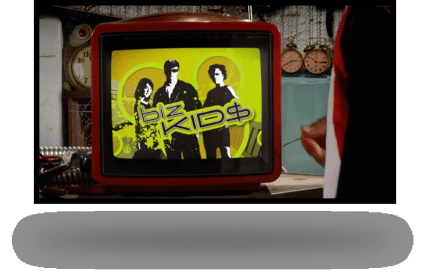“I saw a bank that said “24 Hour Banking”, but I don’t have that much time.” – Steven Wright
The Vault March 2012: Bank on it
Do you keep your money under your mattress? In a jar? In an oak treasure chest buried on a sandy desert isle and marked with an X?
Or do you keep it in a bank where it’s safe—and can even pay you back? Make banking a habit and it will serve you for life. Learn how to get the most from a relationship with a bank in this issue of The Vault—only from Biz Kid$.
Dance of the dollars
Check out this exclusive Biz Kid$ video about a couple of ballroom dancers who bank their earnings. Think kids can’t benefit from a bank? These fast-footed savers are under 10 years old!
|
|
3 ways banks can help you be a better Biz Kid
Shop around
You can choose a big giant global megabank, a regional or local bank, or a credit union. Bigger banks often have more ATMs and may have a wider range of services, but they tend to charge higher fees and pay lower interest rates. Do your homework—compare banks in your area and find the one the works best for you.
Consider a credit union
Credit unions are not-for-profit. Instead of giving extra money to investors, they give it back to members in the form of higher interest rates on deposits, lower interest rates on loans, and lower fees. Most of them make a wide variety of loans including auto loans and student loans.Find a credit union that you are eligible to join and you could save yourself a pretty penny.
|
|
How banks make money
There are many kinds of banks, but the ones we’re talking about are “depository institutions.” That means they take deposits. They make money off the “spread”—not the kind you put on a sandwich, but the difference interest rate they pay on deposits and the interest rate they charge on loans.
Fewer fees, please
Banks also make money on fees when you overspend your checking account, don’t follow certain rules, or pay your credit card bill late. Fees are a big fat waste of money, and young people pay a disproportionate share of them. Seek a bank that keeps them low and fair, and make sure you understand when and why you’ll get dinged.
|
|
|
Fast Facts
Get your Biz Kid$ gear here!
|
|
|





